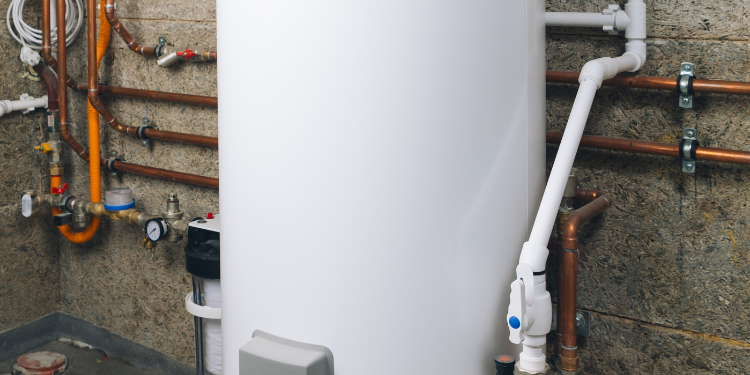Leaking water heaters are a common issue in many homes across Richardson, Allen, Frisco, Plano, North Dallas, Addison, Lake Highland, Garland, Wylie, Rowlett, and Sachse, Texas. If you’re facing a leak, it’s essential to address the problem as soon as possible to avoid more extensive damage to your property. Casto Leak Detection is here to help guide you through simple steps to diagnose the issue and determine if professional intervention is necessary.
A leaking water heater might seem like a minor issue at first, but it can escalate into a costly repair if not handled correctly. At Casto Leak Detection, we understand the importance of swift action and accurate diagnosis, ensuring your home remains safe and free from water damage.
Key Takeaway: Detecting and addressing water heater leaks early can prevent significant water damage and costly repairs. Here are simple steps to diagnose a leaking water heater and determine the best course of action.
Identifying the Source of the Leak
Investigate the Tank
Before diving into the process of repair, the first step is identifying where the leak is coming from. Often, a leak can originate from the top, bottom, or around the tank. Carefully inspect the tank for any visible signs of moisture or dripping water. A leak at the top may suggest loose pipe fittings or a faulty valve, while a leak at the bottom could point to a more serious internal issue, such as corrosion. Understanding the leak’s location is crucial in determining whether a minor adjustment or professional help from Casto Leak Detection is required.
Checking the Pressure Relief Valve
The pressure relief valve plays a crucial role in ensuring your water heater doesn’t over-pressurize, potentially causing dangerous bursts. If the valve is leaking, it may indicate that too much pressure is building up in the tank. Sometimes, the valve itself might be faulty, needing a simple replacement. It’s important to monitor this closely because a damaged valve can lead to more significant problems down the line. Be sure to contact a professional if you are unsure about handling the valve on your own.
Inspect the Drain Valve
Located near the bottom of the water heater, the drain valve is used to empty the tank for maintenance or replacement. Over time, the drain valve can become loose or damaged, causing a slow leak. This can often be fixed by tightening the valve, but if the leak persists, it may require a replacement. At Casto Leak Detection, we recommend scheduling a professional inspection if the leak continues after tightening.
Diagnosing Internal Tank Problems
Corrosion and Rust
If your water heater is older, there’s a possibility that corrosion has formed inside the tank. Corrosion can weaken the structure, leading to leaks that cannot be easily repaired. In these cases, replacing the water heater may be the best solution. Corrosion is more common in areas with hard water, so homes in places like Richardson or Frisco may experience this issue more frequently. Investing in a water softener or regular maintenance checks can help prolong the life of your water heater.
Sediment Build-Up
Sediment naturally accumulates inside the water heater over time, especially in areas with high mineral content. This build-up can cause the bottom of the tank to overheat, leading to cracks and leaks. Flushing your water heater annually can help prevent this, but if you haven’t performed regular maintenance, a significant sediment build-up could be the source of your leak. In cases of severe build-up, professional cleaning or replacement of the tank may be necessary.
Internal Seal Damage
Water heaters have internal seals that help keep water inside the tank. Over time, these seals can degrade, leading to leaks. This issue is more challenging to diagnose without professional assistance, but if your water heater is leaking and you can’t find an external source, it’s worth considering internal seal damage. This often requires a professional plumber or leak detection expert like Casto Leak Detection to assess and fix.
Determining Whether You Need a Repair or Replacement
Age of the Water Heater
One of the most critical factors in deciding whether to repair or replace your water heater is its age. Most water heaters last around 8-12 years. If yours is nearing or exceeding this range, replacing it with a new unit may be more cost-effective than repairing it. Newer models are also more energy-efficient, saving you money on utility bills in the long run. If you’re unsure of your water heater’s age or condition, our team at Casto Leak Detection can help you evaluate your options.
Severity of the Leak
The size and location of the leak can also determine whether a simple repair or a full replacement is necessary. Small leaks from valves or fittings can often be fixed with straightforward repairs, while significant leaks or internal issues may require replacing the entire unit. Our team at Casto Leak Detection is equipped to handle both minor and major repairs, ensuring your water heater functions efficiently and safely.
Cost of Repairs vs. Replacement
Another important consideration is the cost. If the cost of repairing your water heater exceeds half the cost of a new unit, it might be more practical to invest in a replacement. We can provide you with a comprehensive estimate, allowing you to make an informed decision that fits your budget and long-term needs.
Preventing Future Leaks
Regular Maintenance
Regular maintenance is key to preventing future leaks in your water heater. This includes flushing the tank to remove sediment, inspecting valves and fittings for wear and tear, and checking for any signs of rust or corrosion. Homeowners in areas like North Dallas and Addison can benefit from scheduling annual maintenance checks to extend the life of their water heaters and avoid unexpected issues.
Installing a Water Softener
In regions with hard water, such as Garland and Wylie, installing a water softener can help reduce mineral build-up inside your water heater. This can prevent sediment-related leaks and extend the unit’s lifespan. Casto Leak Detection offers expert advice on water softener installation and maintenance, ensuring your water heater operates efficiently for years to come.
Upgrading to a Tankless Water Heater
For homeowners looking to upgrade, switching to a tankless water heater can eliminate many of the common issues associated with traditional water heaters. Tankless systems provide hot water on demand, eliminating the need for a storage tank and reducing the risk of leaks. While tankless systems require a larger upfront investment, they offer long-term savings and improved efficiency.
Answering Common Questions
What should I do if I find a leak near my water heater?
The first step is to turn off the power supply and water to the heater. Then, inspect the source of the leak and determine whether it’s something you can fix or if you need professional help.
Can I repair a leaking water heater myself?
Some minor leaks, such as those from loose fittings or valves, can be repaired at home. However, more serious issues, such as internal corrosion or seal damage, require the expertise of a professional like Casto Leak Detection.
How often should I have my water heater inspected?
We recommend having your water heater inspected annually to catch potential issues before they become significant problems. Regular maintenance can also extend the life of your unit.
Protecting Your Home From Water Damage
Taking proactive steps to maintain your water heater can save you from the headaches of water damage. Whether you need routine maintenance or a full replacement, Casto Leak Detection is here to help.
When to Call Casto Leak Detection
If you suspect a leak and aren’t sure how to proceed, it’s always better to call a professional. At Casto Leak Detection, we offer expert leak detection services in Richardson, Allen, Frisco, Plano, North Dallas, and surrounding areas.
Contact Us for Professional Leak Detection Services
At Casto Leak Detection, we specialize in identifying and repairing leaks before they cause extensive damage. Reach out to us today for a consultation and keep your home safe from water damage.







